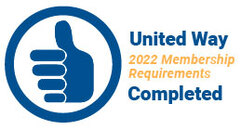|
We often hear about stigma related to mental illness and substance abuse, but what does that really mean?
Stigma is a form of discrimination. It includes making negative judgements and assumptions about others based on perceptions of who they are, what they look like, and what they do. Stigma decides who merits dignity and respect and who does not. Stigma often means distancing yourself from those you deem unworthy. Stigma isolates and divides people into US and THEM. Stigma uses attitudes, words and actions to separate “innocent” people from bad ones. Where substance abuse is concerned, it separates junkies from those who deserve help and divides addicts from those worthy of resources. Stigma keeps families silent about their loved ones who struggle with addiction. Stigma says that if your child is involved in substance misuse, you are a bad parent. It silently accuses you of doing something wrong, even though a third of all families in the United States have a loved one struggling with addiction. Stigma ignores the fact that addiction can happen to anyone, and that no one is safe. As the fifth graders in the We are the Champions drama club said,” Addiction is an equal opportunity destroyer.” No one is immune. Stigma says It can’t happen to me or mine. Stigma keeps communities from reaching out to those in need. Stigma means thinking that people involved in substance use just need to snap out of it and pull themselves up by their boot straps. It has us believing they are weak-willed and lacking self-control. Stigma is the cashier who looks with disdain at people using food stamps. Stigma is the receptionist who treats clients with tattoos and piercings differently those who don’t. Stigma is an educator who expects less of the children from “that family.” Stigma is the medical professional whose words or actions communicate that the patient is a hopeless addict. Stigma is smugly shaking your head, looking down on others, glad you are too smart, good, or virtuous for that to happen to you. But when you listen to the stories of families and people involved in substance use, you begin to understand it could happen to anyone. I hear stories of people who received prescription opioids, hated the way it made them feel, and refused to take more. Perhaps they are the lucky ones. There are stories of others who upon that first opioid prescription, finally felt complete and that they had “arrived,” taking their first steps downward into substance misuse. Stories abound of youth who experimented believing they were invulnerable and invincible only to become ensnared in the world of addiction. The stories of children whose families embraced the drug culture and never knew anything different are devastating, as they often become addicted to substances before they enter middle school. Stigma is children whose lives are impacted by decisions that other people make for them. Stigma keeps people silent, isolated and shamed. Of the millions of Americans involved in substance abuse, only 10 percent seek out treatment. According to the NAMI Cure Stigma website, stigma prevents people from seeking help because of shame or fear of judgement. Stigma says there is no hope for recovery. Stigma points a finger offering blame and judgement, instead of compassion. Stigma never helps. Next time, how to combat stigma.
0 Comments
Your comment will be posted after it is approved.
Leave a Reply. |
AuthorLynn Saylor is the AmeriCorps member working with the United Against Opioid Abuse Initiative alongside the White County United Way. She is a major facilitator of the United Council on Opioids serving White County and a regular contributor to local media. Archives
October 2020
Categories
All
|

 RSS Feed
RSS Feed
